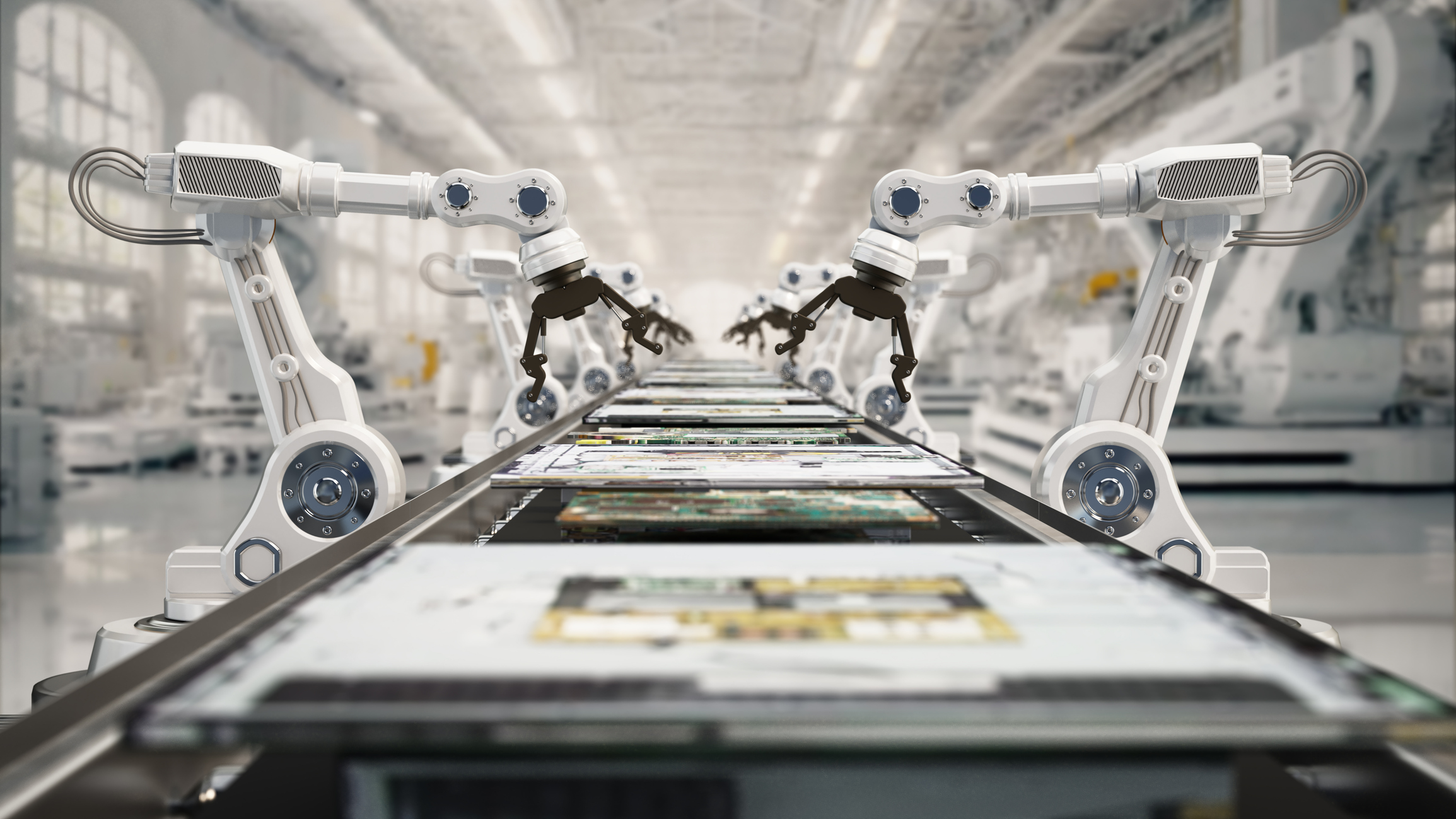Perhaps not surprisingly, people frequently ask me about the potential impact artificial intelligence (AI) might have on the labor markets and, therefore, the U.S. economy. After all, consumer spending makes up close to 70% of Gross Domestic Product (GDP) equation. If AI kills a lot of jobs, it kills a lot of paychecks.
Intuitively, that would not be good for consumer spending. As such, the more AI disrupts the labor markets, the greater the potential threat to the U.S. economy. The weaker the economy, the bigger the Federal budget deficit. The bigger the deficit, the greater the upward pressure on longer-term interests.
The worst-case scenario is an economic doom loop that doesn’t have a foreseeable end.
Now, before you pour yourself a strong cocktail to allay your frayed nerves, this sort of thing has happened in the past. No, it hasn’t been with AI, accelerated computing and data centers. However, nearly every advancement in technology has, does, or will render certain jobs redundant.
- How many agricultural jobs did tractors, reapers, combines and even GMO seed kill?
- What about the impact the interstate system had on the railroad industry and all of those jobs?
- Or cellphones on telephone switchboard operators?
- Word processing software on typing pools?
- Email, texts and the elimination of long-distance telephone charges on postal systems?
Where did all of the radio and television repair shops go? Lamplighters? Soda jerks? Wheelwrights? Keypunch operators? Milkmen? Icemen? Diaper services? Elevator operators? Street sweepers? Cobblers? Coachmen?
In truth, the list of obsolescent jobs is seemingly never-ending. Labor redundancies seem to be a relative constant since the dawn of the Industrial Revolution. So, why is this time any different? Just because no one has a firm grasp on AI’s ultimate potential and abilities?
Fair enough.
Years ago, when we were raising capital to start Oakworth Capital Bank, more than a few people said something along the lines of: “Birmingham needs another bank like a hole in the head. There are already too many of them.” Trust me, this isn’t what one wants to hear after making such a significant career decision.
However, there was, and still is, some merit to that contention. There seems to be no shortage of firms selling money in our metro area. Even so, when I got that comment, I would respond with: “Do you think Birmingham needs another restaurant?” Not surprisingly, the answer was always a resounding NO to that as well.
I would agree with them we didn’t need another place with license plates on the wall schlepping mediocre bar food and grilled tilapia over a starch. However, I would ask: “But what if Frank Stitt (local celebrity chef) opened a new place? Would you go to it?”
Not surprisingly, the answer was always, and I repeat always, some variant of: “Of course, I would. Don’t be silly.”
Interestingly, it appears the market has determined that it doesn’t need as many restaurants serving up non-descript fare either. This is evident in the waning fortunes of once-ubiquitous chains like TGI Friday’s and Ruby Tuesday’s, amongst others.
A knee-jerk reaction to the decline of this culinary segment could be: everyone was offering essentially the same thing, in the same type of setting, at about the same price. In truth, I would have a hard time arguing against that.
In essence, these companies were “stuck in the middle.” They weren’t competing on either product or price. Burgers, wings and mozzarella sticks? Yep. Watery beer specials? You bet. At prices somewhere in between McDonald’s and Flemings? Don’t you know it.
I am not necessarily trying to pick on these restaurants. They are just simple to understand. There are any number of “stuck in middle” competitors in virtually every industry segment and product line. You can undoubtedly think of plenty on your own.
Now, it probably shouldn’t come as any great surprise that “stuck in the middle” companies often feel the greatest pain when the economy or consumer preferences change. To that end, think about all the once-great American companies that are no longer around. Ones that simply “didn’t adapt” or something along those lines.
Their ultimate failures were almost always crystal clear in the rearview mirror, weren’t they?
With this in mind, why are individual workers any different? If businesses must compete on either product or price in order to succeed long-term, why wouldn’t workers? Why would they be immune from changes in the economy and consumer preferences?
They aren’t. When cuts have to get made, who gets it first? The top performers or the cheapest per unit of output? Or the so-called, and much maligned, middle management? Those workers whose only distinction is the longevity at their position, if they have distinguished themselves at all?
You know the answer. So, you now know the answer to the following: “Which workers will AI replace first?”
The same ones who would have been the first out of the door given a decline in the economy or sharp change in consumer preferences. That is the bad news. The good news is there is often some amount of self-determination at play here.
Think of it this way: if you are with a group of people hiking in the woods and a grizzly bear attacks, you don’t have to be the fastest runner to get away. You just have to be faster than someone else. However, if you have to wonder who the slowest one is, it could very well be you. As such, you had better do something about it.
You catch my drift.
To that end, as I will tell anyone, those people who don’t learn to adapt to and use the newest technologies will be at a severe disadvantage in the workforce. They will be the first ones to go. In essence, those that don’t learn to appreciate and utilize AI will lose their positions due to intransigence. Period and end of discussion.
Therefore, in the end, am I worried about the impact AI might have on the U.S. economy due to its making so many jobs redundant? Not as much as you might imagine. The reason being because those jobs probably weren’t real value and wealth creators. They were “stuck in the middle,” and would have been lost at some point and in any event.
While that might come across as a bit cavalier or even cold, you must remember those that DO adapt to and use AI effectively will develop new technologies, industries and jobs that don’t currently exist! Frankly, this makes AI far more exciting than terrifying to me.
As such, and in the end, when people ask me about AI’s potential impact on the U.S. labor markets, I usually tell them there might be some short-term pain for some. However, in the longer term, it will be a massive job creator, and I can’t wait to see what changes it brings us.
Thank you for your continued support. As always, I hope this newsletter finds you and your family well. May your blessings outweigh your sorrows on this and every day. Also, please be sure to tune into our podcast, Trading Perspectives, which is available on every platform.

John Norris
Chief Economist
Please note, nothing in this newsletter should be considered or otherwise construed as an offer to buy or sell investment services or securities of any type. Any individual action you might take from reading this newsletter is at your own risk. My opinion, as well as those of our Investment Committee, is subject to change without notice. Finally, the opinions expressed herein are not necessarily those of the rest of the associates and/or shareholders of Oakworth Capital Bank or the official position of the company itself.


